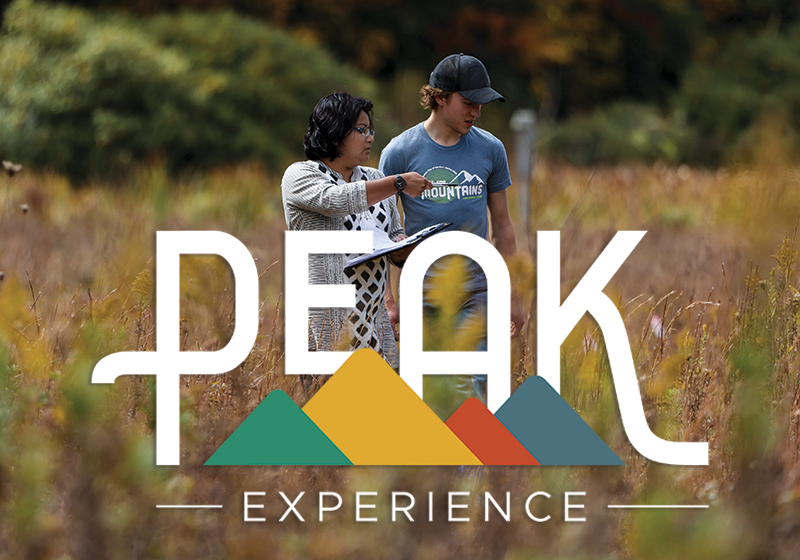
Learn how to enjoy the process with Head Women’s Basketball Coach Keith “Mister” Jennings
You can call him coach, and of course Keith, but most people call him Mister.
Head Women’s Basketball Coach Keith “Mister” Jennings’ life has almost always revolved around basketball, whether that has been on, or off, the court.
Rising through the ranks from playing basketball at East Tennessee State University (ETSU) all the way to the National Basketball Association (NBA) playing with the Golden State Warriors, Jennings brings his years of experience and knowledge to young student-athletes who, perhaps, may want to achieve the same thing.
His advice and perspective, however, can extend well beyond the boundaries of the court. As a coach and former pro-athlete, Jennings understands that both hard work, passion, and “enjoying the process” can lead to results beyond one’s wildest imaginations.
Get to know Jennings some more in our most recent staff Q&A: (responses have been edited for clarity and brevity).
How did you first get introduced to basketball?
Growing up, I actually thought I was going to be a football player. I really loved that type of action, and that was the first sport that I started watching. But as I got older, basketball became the sport that I really fell in love with. I had an older brother that beat me in it all the time, which gave me a spirit of not liking to lose. I just had to keep working on my game, and eventually I got better. Once I could beat him, I felt like I could beat anyone! Years later, I found myself playing for ETSU—the only college to offer me a scholarship. I had to take that opportunity because my family and I didn’t have a lot of money at the time. In college, that is where everything really started for me—I learned a lot.
Becoming a player in the NBA is a huge accomplishment—what was it like reaching that level?
The transition to the NBA was a humbling experience. When I came out of college I was the best player in the country under six feet and second team all-American. I thought with those accolades behind me I was going to be drafted, no problem. But, being a smaller player, I guess it didn’t work into my favor. I ended up playing in Germany for my first year to get the experience and understanding of playing the professional game. What really got my foot in the door was when we went to California to play a few games. After a really successful game, I was walking off the court when the player personnel director for the Golden State Warriors tapped me on the shoulder and introduced himself. In that moment I thought: wow this could be another opportunity. I ended up trying out and making the Warriors. It was a dream come true.
Why did you decide to switch your career from playing basketball, to coaching it? What drew you to coaching?
I think all athletes know at some point that you will no longer be able to play at that certain level anymore. I finished up that year, retired [after three years with the Golden State Warriors], and had a coaching job waiting for me, which was a good transition. I coached, went back and finished my degree, and that got me the job at ETSU. Then I became the assistant coach at Bluefield College, assistant men's coach here at Lees-McRae, and now the head women's coach. It’s been a nice little journey to get to what I really want to do.
What opportunities or skills do you hope to bring to your athletes? Are those skills applicable to life both on, and off, the court?
First thing is to get my team to believe in themselves. Believing in yourself is always important because we all know that if you lose confidence in yourself, you’re not going to do your job successfully. I want my team to understand that if you believe in yourself, work on your craft, and get confidence in yourself, then you are going to play at a good level.
As someone who progressed through the ranks themselves and ultimately landed among the few in the NBA, why is it important to offer a robust collegiate athletics experience for young athletes?
For me, it turned out to be all about relationships. You start to meet people that perhaps you first met playing basketball, and then you build that basketball bond. But once basketball is over, hopefully you can become more than just teammates and build those life-long relationships. I want my team to know that some of the people you are playing with can end up being very important people in your life. Matter of fact, one of my [former] teammates is now my financial advisor—that is somebody you have to trust! I try and let my girls know that the person you are sitting next to right now could be someone that can help you or vice versa.
If you could say something to all the student-athletes at Lees-McRae, what would you like them to know?
I would say what I say to my team and all the athletes here: enjoy the process. A lot of times young people want it right now, and when it doesn’t happen, they might get a little upset at the situation, or even the coach. I try to tell everyone to enjoy the process and really work on your craft. If you’re here to play basketball, you should be in the gym a lot. If you’re here to play soccer, or run track, you should be in the weight room getting stronger and better every opportunity that you have. You know what you are here [in college] for: to get your degree and make waves in the sport that you love.
Tell us a little more about how you got the nickname Mister and how it has stuck over the years.
I first got my nickname growing up playing football around the age of seven. One day I was out there for a couple hours when my dad called me and said, “Keith! Let’s go!” I heard him, [but wasn’t paying that much attention.] Next thing he said was, “Mister Jennings, get over here!” and it kind of stuck! My older brother’s nickname is “man” and so [from there on out] everyone would be like, “here comes ‘man’ and ‘mister!’” I of course answer to coach or Keith, but I probably hear Mister most often.



